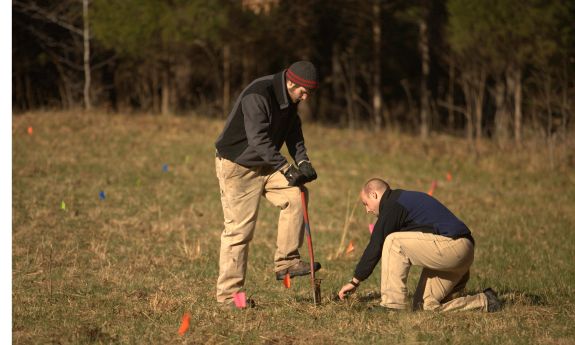Green Your Spring Schedule with Climate & Sustainability
Spring 2024 Climate and Sustainability Course List has something for everyone

“Our climate and sustainability courses are designed with every kind of student in mind,” said Toddi Steelman, vice president and vice provost for climate and sustainability. “This is a global challenge requiring everyone’s attention, so we’re trying to bring climate considerations into every topic you can imagine.”
The course list, which has been published prior to the beginning of each semester since the Duke Climate Commitment’s announcement in Fall 2022, was developed by staff in the Office of Climate and Sustainability and the Nicholas Institute for Energy, Environment & Sustainability.
The list offers students a roadmap to begin learning more about climate-related topics. Highlights include
- ECON 325S: Economic Analysis of Current Energy Issues
- ECS 212S: Exploring Climate Sciences: Data-Driven Investigations
- POLISCI 128: Climate Change
- HISTORY 131S: Global History of Extraction
- LATAMER 341S: Perspectives on the Amazon
- BIOLOGY 531S: Interplay Between Plants and Climate Change
- VMS 520S: Eco-Media: Studies in Planetary Futures
- PUBPOL 754: International Energy System
- ENVIRON 790-10: Special Topics: Carbon Accounting and Certification
- LAW 741: Climate Change and Financial Markets
Staff from the Office of Climate and Sustainability are currently working to create a permanent database of courses related to these topics, to facilitate increased “wayfinding” for climate and sustainability learners university-wide. “It’s critically important that Duke students be able to find these courses when it’s time to register so they can build their knowledge and agency,” said Katie Douglas, associate director of administration and program development in the office of climate and sustainability. “Learning about climate change and how it affects a student’s chosen career field has never been more important — to understand not just where we’re headed in the future, but also our present moment and how each of us can make changes for the better.”